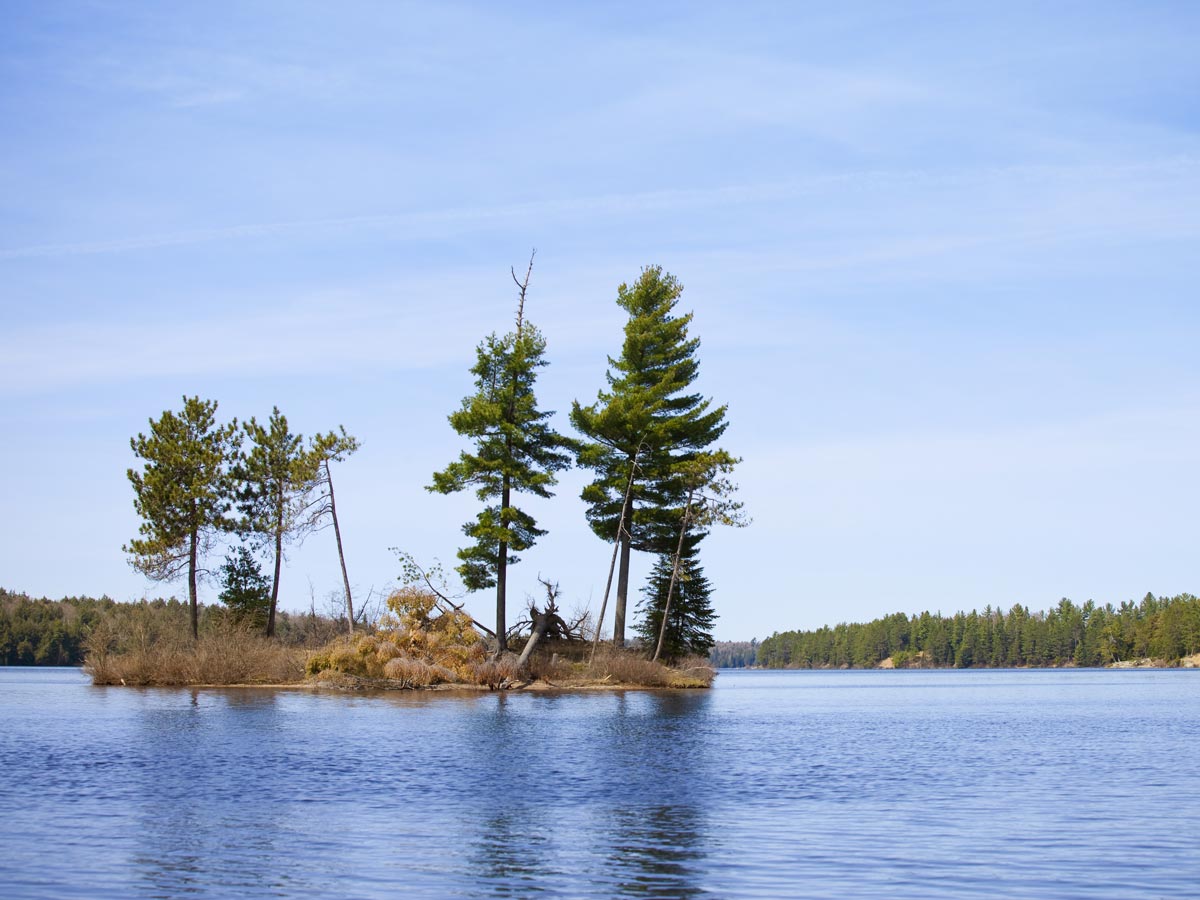Ryerson ecologist part of international collaboration studying impacts of salt pollution on lakes

Professor Stephanie Melles researched how salt pollution impacts zooplankton in pristine lakes like Opeongo in Algonquin Provincial Park as part of a collaborative international study into freshwater lake salinization.
In regions like Canada, where de-icing is common, road salt use is a major driver of freshwater lake salinization. Ryerson science professor Stephanie Melles participated in an international research effort looking into salinization – an increase in salt concentration – that found significant damage to freshwater lake ecosystems across North America and Europe occurs at levels of salt pollution far below the ranges that government regulators have deemed safe, according to a recent announcement on the findings.
Professor Melles was part of a study by the Global Salt Initiative, which conducted the research through an experimental network of 16 sites in four countries: Canada, the U.S., Sweden and Spain. She ran a six-week experiment at Lake Opeongo in Algonquin Provincial Park. Research published by the initiative in Proceedings of the National Academy of Sciences found that freshwater salinization causes a large loss of zooplankton and an increase in algae. These impacts occur even at the lowest of the chloride thresholds created by governments in Canada, the U.S. and across Europe.
To get a holistic picture of how lake flora and fauna are affected across these 16 sites, researchers examined the effects of salinization on zooplankton – small microorganisms in water – in their natural habitats. These zooplankton, such as daphnia, more commonly known as water fleas, play critical roles in lake ecosystems, eating algae and providing food for fish. Professor Melles says they found there was a quick drop-off in zooplankton populations taken from Lake Opeongo and treated in experimental tanks, and there was a 25 to 50 per cent decrease in zooplankton abundance at the Canadian threshold of 120 milligrams of chloride per litre. These findings are similar to the results from nearly three-quarters of the experimental sites from this study, where the chloride concentration levels that caused a 50 per cent decrease in zooplankton were below the local governments’ guidelines. Canada has the strictest thresholds of the countries included in the study. Professor Melles was assisted by Ryerson undergraduate students, and her study was conducted at Harkness Laboratory of Fisheries Research.
“If you see a 50 per cent reduction of zooplankton in a lake, you can expect to have huge impacts on algal blooms that then die off and use up the oxygen. That could impact fish communities, not only because they have less to eat, but because there’s lower oxygen levels … so it has ramifications that are unexpected,” she said. “They called it a ‘trophic cascade’, so you could see impacts all the way up the food chain, ultimately affecting numbers of fish and water quality.”
Road salt is a major cause of lake salinization in locations where frequent de-icing occurs. Activities like agriculture and mining are causes as well. Rising sea levels resulting from climate change also mean marine saltwater is intruding on coastal aquifers and lakes, says professor Melles. The researchers suggest that until there is a more ecologically friendly alternative to road salts, best management practices may help reduce salt pollution.
The Global Salt Initiative is led by professor Shelley Arnott from Queen’s University and professor Bill Hintz from the University of Toledo. Another recent journal article stemming from this project appeared in Limnology and Oceanography Letters (external link, opens in new window) , demonstrating that salinization also causes consistent losses in zooplankton species diversity.
Other aspects of the impacts of salt pollution will be published this spring in an upcoming special issue of Limnology and Oceanography Letters titled Increasing Salinity in Freshwater and Coastal Ecosystems that professor Melles is guest editing. It will include papers based on the the work done by the Global Salt Initiative as well as other international studies on salinization.
Professor Melles’s research is supported by a Natural Sciences and Engineering Research Council of Canada Discovery Grant and the Faculty of Science. This project was also supported by Ryerson’s Undergraduate Research Opportunities program.